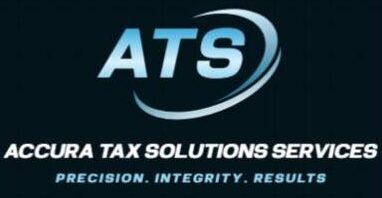Income Tax Returns
The deadline for submitting the Income Tax Return (ITR) for the Financial Year 2022–23 is set for July 31, 2023.
The new Assessment Year 2023–24 commenced on April 1, 2023. Typically, the last date for filing ITR is July 31, and it is expected that this timeline will remain unchanged for the current year.
In previous years, the Government has granted extensions for ITR filing due to various reasons. However, for this year, an extension appears unlikely. The Central Board of Direct Taxes (CBDT) has already released the ITR forms for Assessment Year 2023–24 well in advance—over a month before the filing season began.
Income Tax Returns
1000+ Clients Worldwide
Get a
free quote
Fast & easy
process
Rated at 4.9+ By 1000+ Customers
100% Satisfaction Guaranteed
Top 3% of Industry Professionals

Income Tax Return (ITR)
Call experts
9729035064
Benefits of Paying Income Tax
Paying income tax is not just a legal obligation—it’s a moral and civic responsibility for every conscientious citizen. Filing your taxes annually supports the government in assessing public expenditure needs and provides you, the taxpayer, with access to financial reliefs, refunds, and long-term financial credibility.
1. Civic Responsibility and Financial Transparency
Filing taxes demonstrates your commitment to the nation’s development. It allows tax authorities to maintain accurate financial records of individuals and entities, which, in turn, enables smoother future transactions and legal processes.
2. Voluntary Filing Has Its Perks
Even if your income is below the mandatory filing threshold, voluntarily filing tax returns can be highly beneficial. For instance:
Real estate transactions often require tax return documentation from the past three years.
Loan approvals, such as mortgage applications, may necessitate a consistent tax filing history.
Credit card issuers may request your tax return as proof of income.
3. Essential for Loan and Credit Applications
Financial institutions often require tax returns to assess creditworthiness. Whether applying for a mortgage, a business loan, or even as a co-borrower, your tax history (and sometimes your spouse’s) becomes critical. A lack of consistent filing may hinder these opportunities.
4. Claiming Losses and Carry-Forwards
Filing taxes enables you to report losses—such as speculative, non-speculative, and capital losses—which can be offset against future income. However, if these losses are not reported in the year they occur, you lose the ability to claim them later. Timely filing ensures that you retain this right.
5. Compliance With Institutional and Regulatory Norms
Banks and financial institutions frequently request your past tax returns, sometimes due to regulatory mandates. Whether for opening accounts, investments, or business dealings, a clean and consistent tax record is essential. Even if your sole reason for filing is to carry forward a loss, a formal return must be filed.
Surcharge Rates: Old vs New Tax Regime (FY 2024-25)
| Total Income (₹) | Old Tax Regime | New Tax Regime | Notes |
|---|---|---|---|
| ₹50 lakh – ₹1 crore | 10% | 10% | |
| ₹1 crore – ₹2 crore | 15% | 15% | |
| ₹2 crore – ₹5 crore | 25% (15% on dividend & capital gains*) | 25% (capped) | *Capital gains under Sections 111A, 112, 112A |
| Above ₹5 crore | 37% (15% on dividend & capital gains*) | 25% (capped) | *Capital gains under Sections 111A, 112, 112A |
Summary Comparison
| Income Range (₹) | Old Regime Max Surcharge | New Regime Max Surcharge |
|---|---|---|
| ₹50 lakh – ₹1 crore | 10% | 10% |
| ₹1 crore – ₹2 crore | 15% | 15% |
| ₹2 crore – ₹5 crore | 25% / 15% | 25% (capped) |
| Above ₹5 crore | 37% / 15% | 25% (capped) |
Essential Documents for Filing Your Income Tax Return (ITR)
To ensure a smooth and accurate filing of your Income Tax Return, you must gather all relevant financial and identity documents. These records validate your income, deductions, taxes paid, and eligibility for refunds or exemptions.
1. Identity and Basic Information
PAN Card – Primary identifier for tax filings.
Aadhaar Card – Mandatory for e-verification and linking with PAN.
2. Income Proof
Form 16 – Issued by your employer, detailing salary income and TDS deductions.
Form 16A – For TDS on income other than salary (e.g., interest on FDs, professional fees).
Form 16B – Issued by the buyer when you sell property, detailing TDS on sale proceeds.
Form 16C – Provided by the tenant if TDS has been deducted from your rental income.
Pay Slips – Monthly income record, useful for reconciliation.
Interest Certificates – From banks, post offices for savings accounts, FDs, RDs.
Passbooks – For PPF, postal savings, or other retirement schemes.
3. Tax Payment Records
Form 26AS – Annual tax credit statement that summarizes:
TDS deducted by employers, banks, and other institutions.
Advance tax and self-assessment tax payments.
Refunds and tax-saving investment information.
AIS (Annual Information Statement) – Provides additional financial transaction data.
4. Deductions and Exemptions (Under Sections 80C to 80U)
Submit relevant proofs for claims under:
Section 80C – Investments in PPF, ELSS, LIC, tuition fees, etc.
Section 80D – Health insurance premiums for self and family.
Section 80E – Interest on education loans.
Section 80G – Donations to charitable institutions.
Other sections (80U, 80DD, etc.) – For specific medical and disability-related deductions.
5. Loan and Mortgage Statements
Home Loan Interest Certificate – For deduction under Section 24(b).
Bank Statement for Mortgage Loan – To track EMIs and interest payments.
Final Tip:
Organizing these documents ahead of time ensures accurate reporting and maximizes your eligible deductions. It also prevents delays in case of scrutiny or when claiming a refund.
How to File an Income Tax Return (ITR) in India
The Income Tax Department now allows for electronic submission (e-filing) of tax returns, simplifying the process for individual taxpayers. Here’s a step-by-step guide:
Step-by-Step Procedure for Filing ITR Electronically:
1. Maintain Accurate Financial Records
Before filing, ensure all income, deductions, and investments are properly documented for the relevant financial year.
2. Calculate Your Total Income
Use:
Form 26AS – To view TDS (Tax Deducted at Source), advance tax, and self-assessment tax.
TDS Certificates (Form 16, Form 16A, etc.) – To report income and tax deductions accurately.
3. Choose the Correct ITR Form
Select the appropriate ITR form based on your income type (e.g., salary, business, capital gains).
4. Download ITR Utility Software
Visit the official Income Tax Portal https://www.incometax.gov.in, and download the Java/Excel-based utility tool relevant to your ITR form.
5. Fill Out the Form & Validate Data
Enter your data into the ITR utility software, validate all fields, and ensure accuracy.
6. Convert to XML Format
Once completed, generate and save the XML file using the utility.
7. Upload the XML File on the Portal
Log in to the Income Tax Portal using your PAN and password.
Navigate to “e-File” → “Income Tax Return”.
Upload the XML file.
Choose your verification method (e.g., e-verification via Aadhaar OTP, EVC, or by sending a signed ITR-V to CPC, Bengaluru).
8. Submit and Verify
After uploading, submit your ITR and complete the e-verification process. Filing is incomplete without verification.
How to Reduce Your Income Tax Liabilities in India
Several deductions and exemptions are available under the Income Tax Act to help individuals lower their taxable income:
1. Section 80C (Limit: ₹1.5 lakh)
Eligible expenses and investments:
ELSS (Equity Linked Savings Schemes)
Life Insurance Premiums (LIC)
Public Provident Fund (PPF)
5-Year Tax Saving Fixed Deposits
Tuition fees for children
Principal repayment of home loan
2. Section 80CCD(1B)
Additional deduction of ₹50,000 for contributions to the National Pension Scheme (NPS).
This is over and above the ₹1.5 lakh limit under Section 80C.
3. Section 80D
Deduction for health insurance premiums:
Self, spouse, and children: Up to ₹25,000
Parents (senior citizens): Up to ₹50,000
4. Section 80E
Deduction for interest on education loans taken for higher studies (no cap on amount, but limited to 8 years).
5. Section 80G
Donations to approved charitable institutions can be claimed for deduction (fully or partially, depending on the institution).
6. Section 24(b)
Interest on home loans for self-occupied property:
Deduction limit: ₹2 lakh per annum
For rented-out property: No upper limit
7. House Rent Allowance (HRA) – Section 10(13A)
Available to salaried individuals living in rented accommodations.
Deduction is based on salary, rent paid, and city of residence.
Accura Tax Solutions – Simplifying Your Income Tax Return Filing
At Accura Tax Solutions, we provide expert support to make your Income Tax Return (ITR) filing process smooth, accurate, and hassle-free.
Our Service Workflow:
✅ 1. Transition Support for Income Tax Returns
Whether you are switching tax regimes, filing for the first time, or correcting past returns, we guide you at every step.
🛒 2. Purchase a Plan for Expert Assistance
Choose from our customized service plans based on your filing needs—salaried, self-employed, business, or senior citizen.
❓ 3. Add Your Queries
Got questions? Share your concerns or special cases (e.g., capital gains, foreign income, deductions) with us, and our experts will address them promptly.
📄 4. Submit Required Documents
Upload or email the necessary documents securely to Accura Tax Solutions. We support a wide range of formats and ensure confidentiality.
👩💼 5. Expert Filing Support
Our tax professionals will review your information, calculate your liabilities, apply eligible deductions, and prepare your return accurately.
🔄 6. Complete All Required Actions
We’ll help you complete e-verification, respond to IT department notices (if any), and finalize all steps required for successful submission.
🎉 7. Sit Back and Relax – Your Work Is Done!
We’ll notify you once your ITR is filed and verified. You’ll receive a digital copy and acknowledgment from the Income Tax Department.
💡 Why Choose Accura Tax Solutions?
✔️ Dedicated tax experts
✔️ Fast turnaround
✔️ Transparent pricing
✔️ Secure document handling
✔️ End-to-end assistance
Let us take care of your taxes, so you can focus on what you do best.
Why choose us?
Accura Tax Solutions Services offers expert assistance in filing all types of ITRs with maximum tax savings and zero errors.
Filing for Salaried, Business, Freelancers & NRIs
Expert CA-Verified Tax Filing
Maximize Refunds & Deductions
Fast & Accurate ITR Processing
Affordable Plans for All Income Groups
Local Support in Safidon & Haryana
Data Privacy & 100% Confidentiality
Trusted by Individuals & Small Businesses

